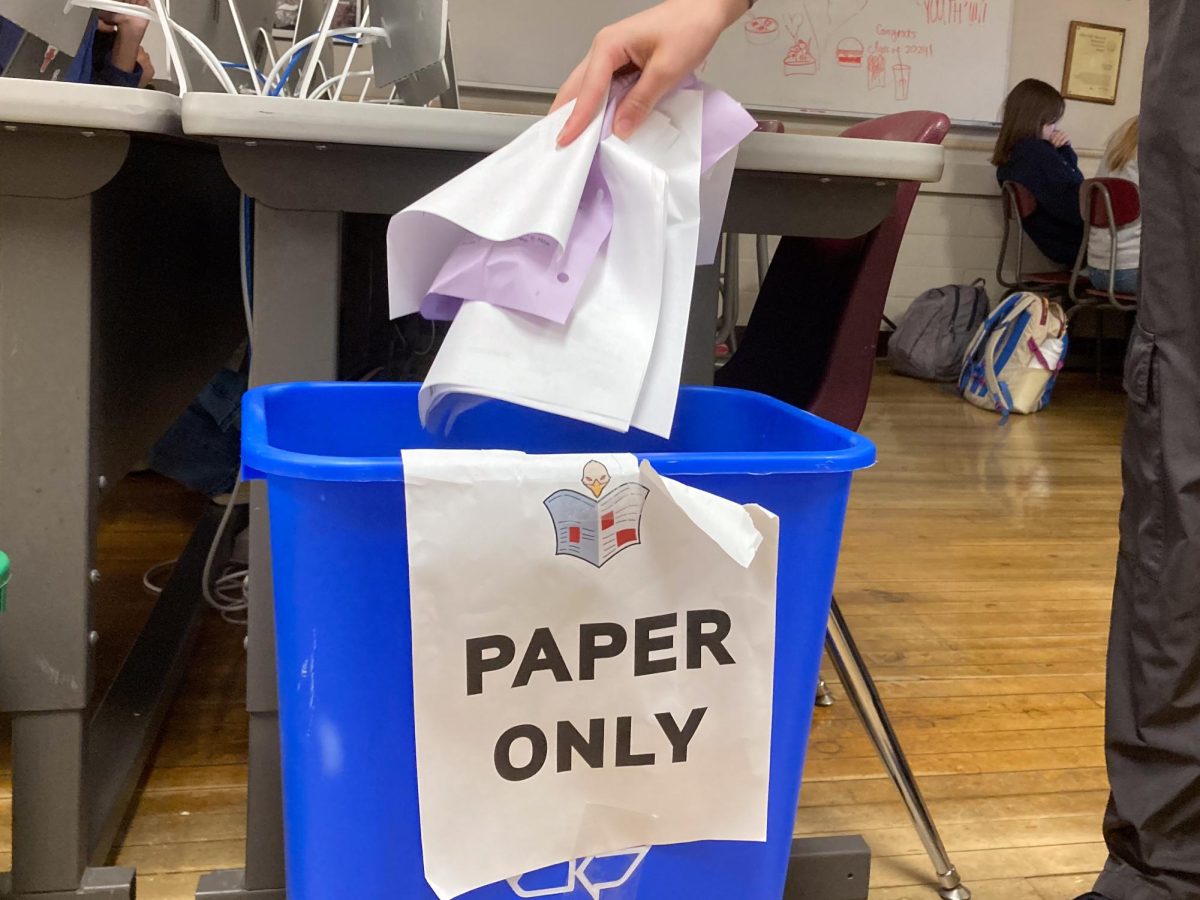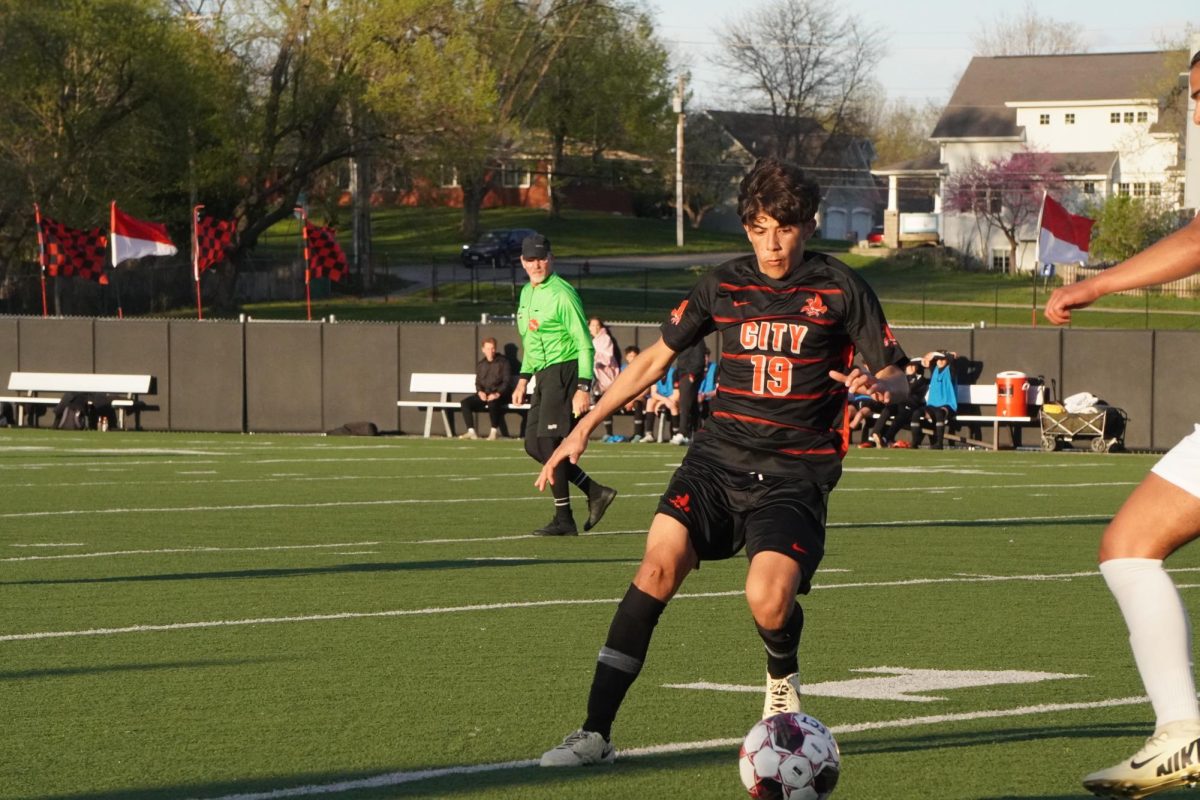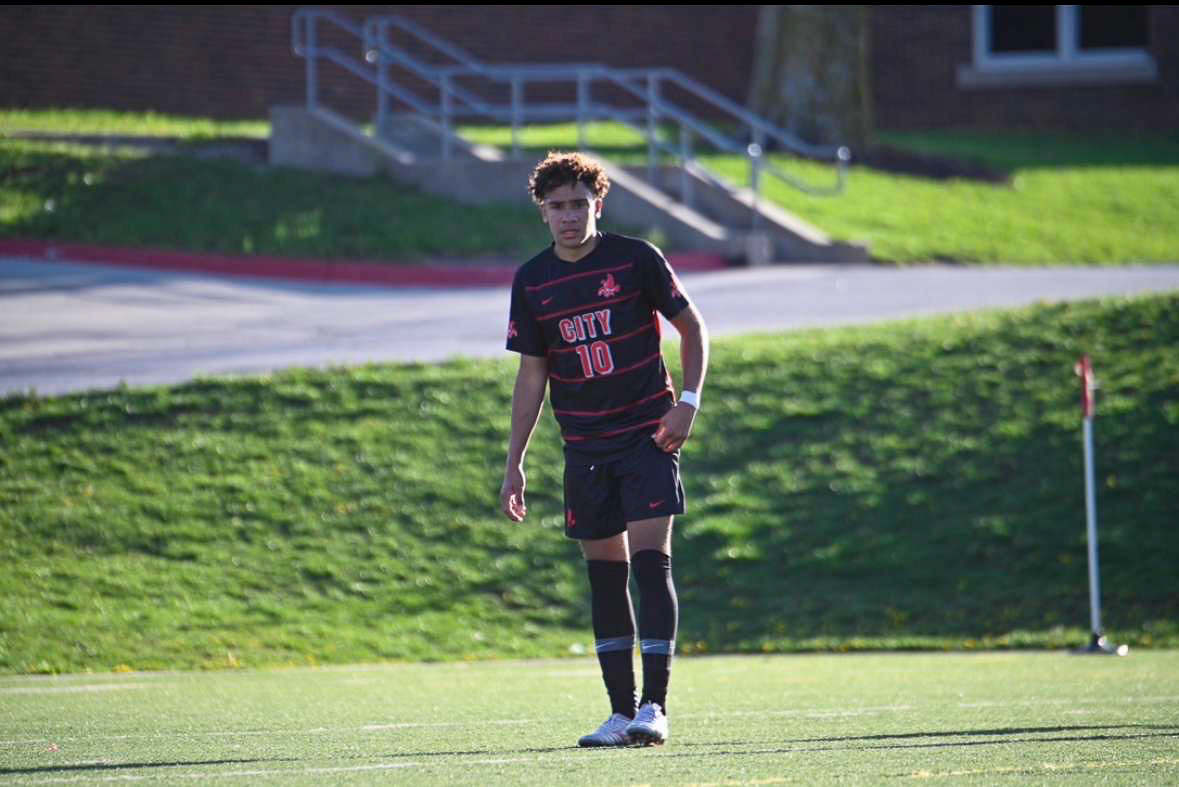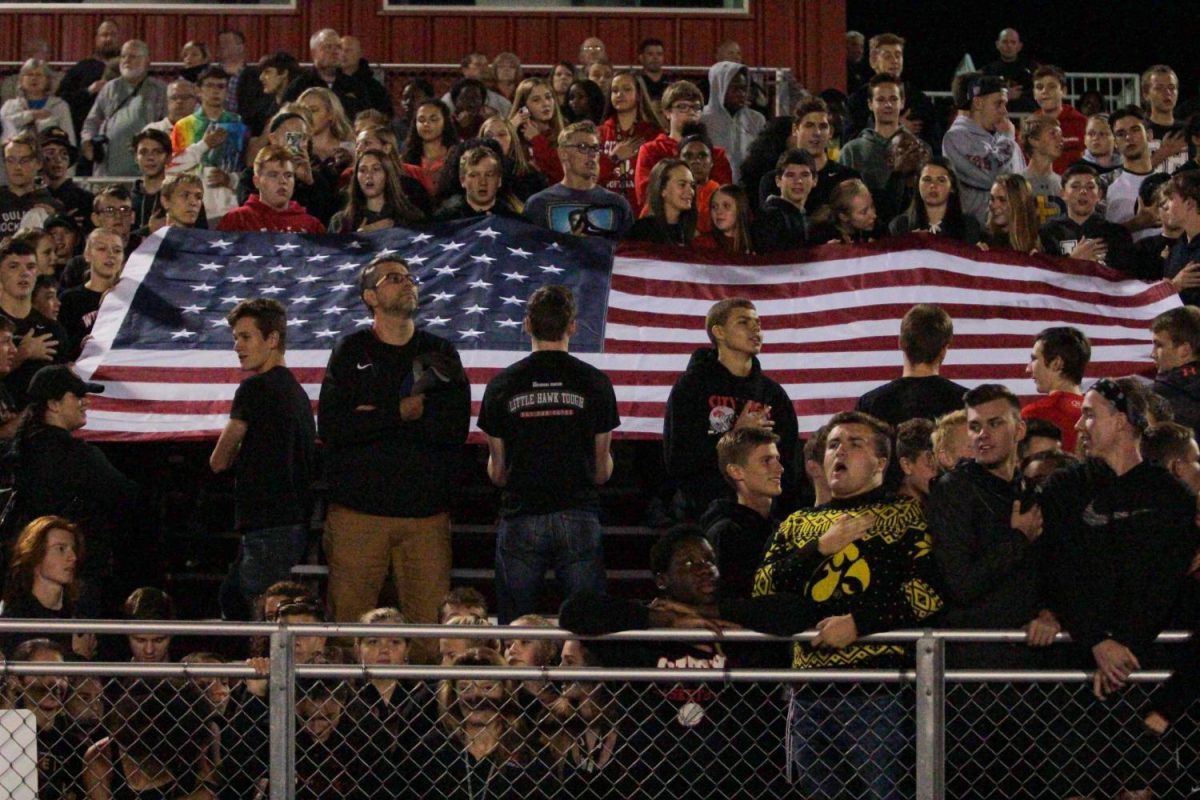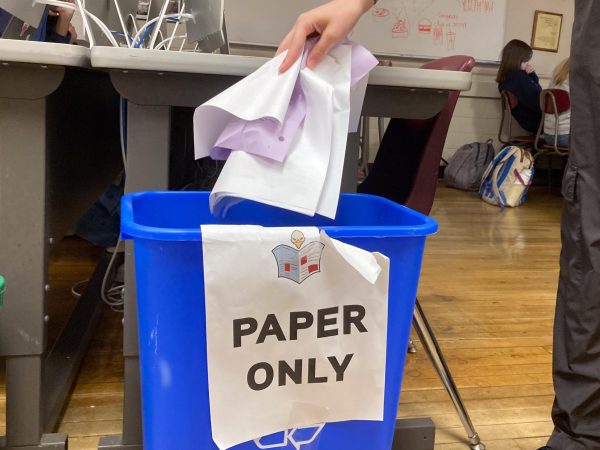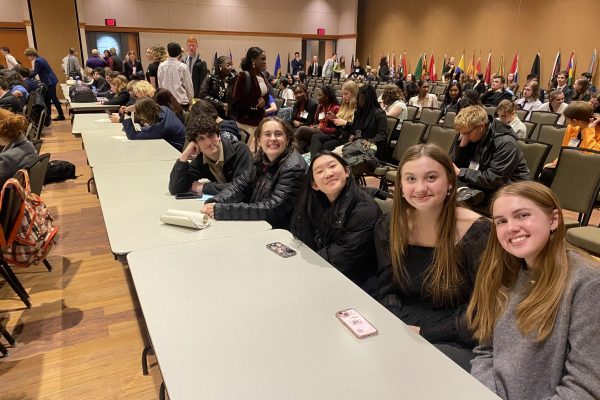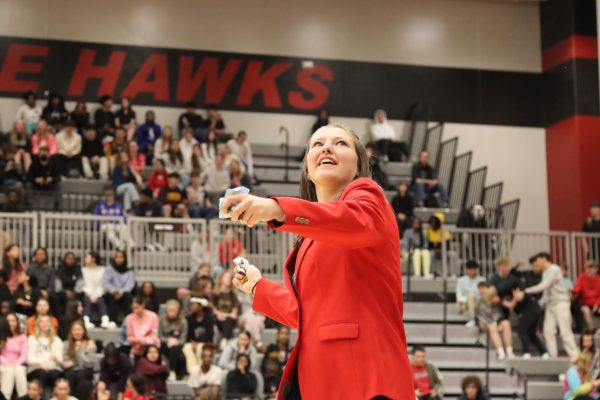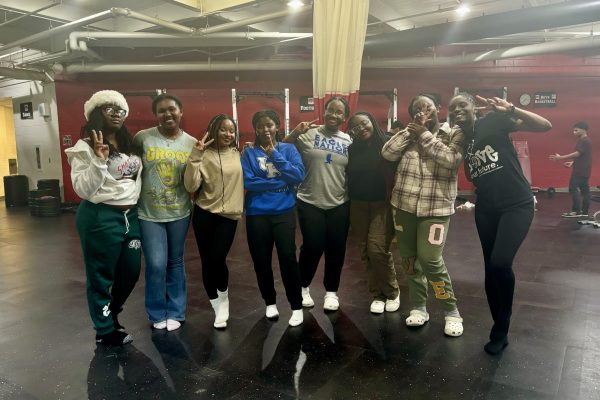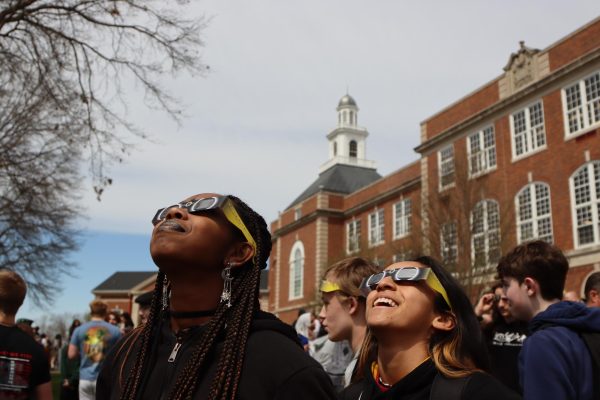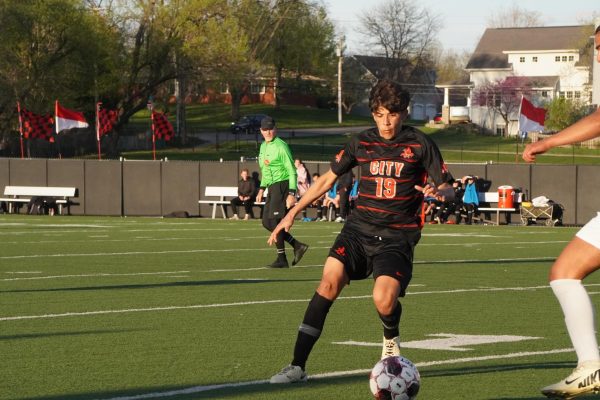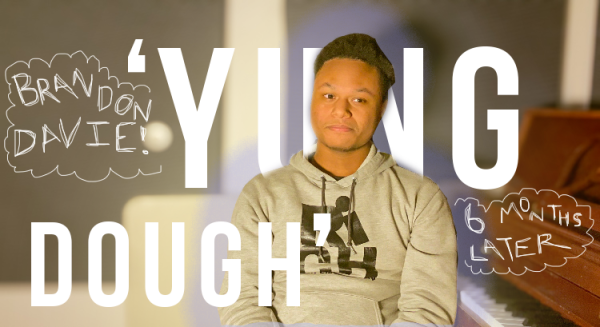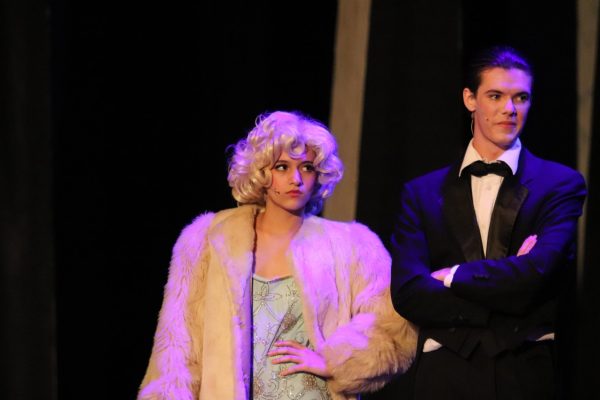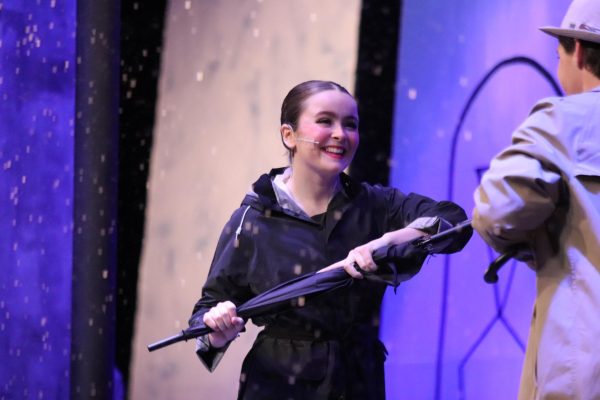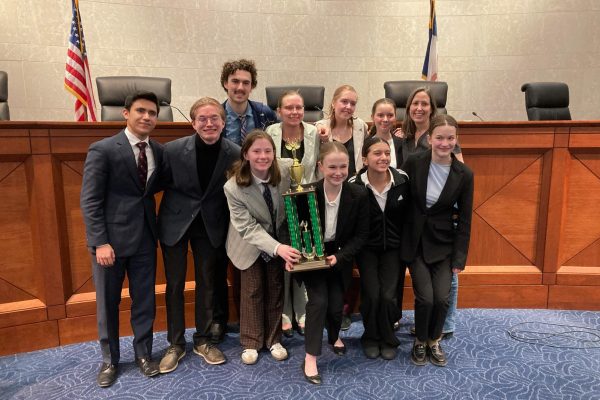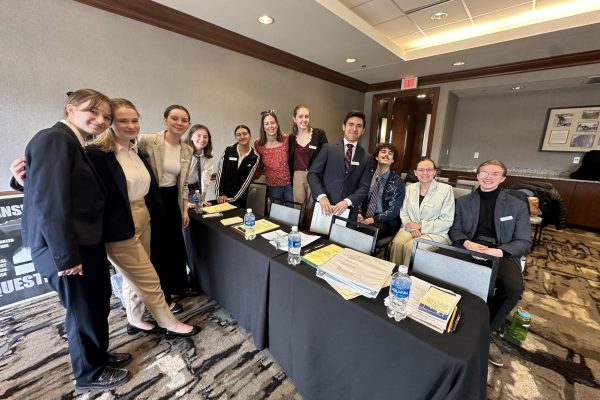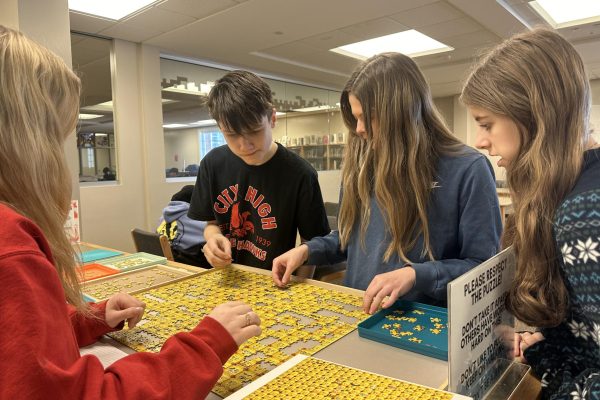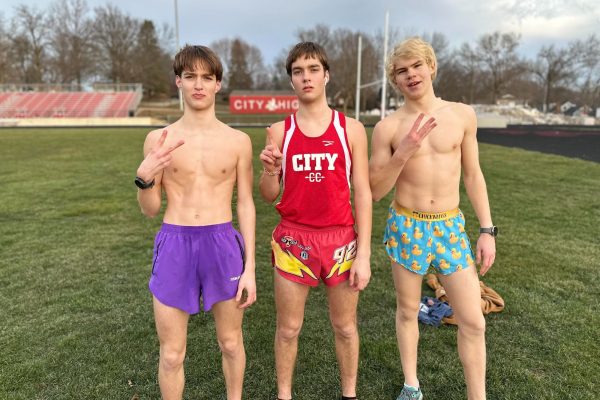Students Kneel and Display Flag During National Anthem
At the varsity football game student protestors knelt while counter-protestors held a flag behind them. Assistant Principal Scott Jespersen stands in between the protests.
A movement that has spread across the nation arrived at City High Friday night before the varsity football game. Earlier that week, Amelia Morrow, Mary Liebig, Bihotza James, and Kawther Rouabhi decided to organize a time for City High students to partake in the act of kneeling during the national anthem to raise awareness for the Black Lives Matter movement and to spark conversations about race that are not heard as often at City.
You’ve got to educate yourself before you give your opinion. If I have a different opinion than you, I’m going to educate you about what I think.
— Josh Millsap ‘19
“I think this is a serious issue because police brutality against black people is a bad issue,” said Andrew Usachev ‘18, “but protesting it at something like this I feel won’t be the most effective way, because we’re the student section and if you look at something like the NFL that’s the teams that actually do that. The fact that we’re doing it [is] awesome and we’re coming together.”
An estimated 65 or more people decided to kneel or sit during the national anthem. But behind them, several students including Lance Bormann ‘18 brought a 20-foot-long American flag to the game, and remained standing with the rest of the student section. Mr. Jespersen stood between the group of students upright and the group who knelt.
“One of the big reasons [I stood] was I had a grandpa who was drafted into Vietnam,” said Bormann. “And it wasn’t necessarily something that he wanted to do, he just respected his country and knew that he was being called on. That was something that even though he didn’t want to do, he decided that he was going to do. It honestly kind of bugs him when he sees all these people that are kneeling just because he lost friends over there and that was rough on him, and he feels it’s dishonoring those people. I want to honor him and those people he lost.”
Through exchanges and listening, it becomes apparent that there are more than just two sides to this discussion, but all students interviewed agreed that everyone has the right to their freedom of speech and should be allowed to kneel.
“Everybody has their right to believe in what they believe,” said Kate Swenning ‘19. “I’m showing respect to the troops because I’ve had a lot of family serve. I made the decision to stand myself but having family that has served has definitely impacted that.”
The football players of City High were not on the field during the national anthem. They waited patiently on the stairs beside the bleachers, none of them visibly kneeling, waiting to run through a piece of paper before their entrance — a long-held City tradition. However, eight out of the nine cheerleaders knelt and linked arms with each other. The largest group of students kneeling in the student section were in the front portion, including the four girls that introduced the idea.
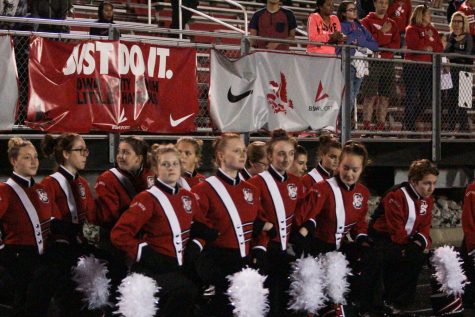
During the national anthem, several members of the band knelt in peaceful protest against police brutality.
Marching band members were told by Principal Bacon not to kneel on the field, as they are representing the marching band. But if they were to make that statement, he asked them to do so on the front of the field to represent their individual choice. Principal Bacon spoke to Matt Carver, a legal expert on situations like these, who instructed Bacon to advise students against kneeling on the field, not only because they are representing the school’s marching band but because it is an assignment for their class.
However, Brian Hauss, the ACLU Staff Attorney for Speech, Privacy & Technology, explained that government and schools cannot legally force students to participate in patriotic rituals such as the anthem or Pledge of Allegiance, citing the 1943 Supreme Court case West Virginia Board of Education v. Barnette. “…Students cannot be forced to recite the Pledge of Allegiance,” Hauss said. “The Court famously declared, ‘If there is any fixed start in our constitutional constellation, it is that no official, high or petty, can prescribe what shall be orthodox in politics, nationalism, religion, or other matters of opinion or force citizens to confess by word or act their faith therein.’ Those words still ring true today, and they apply with equal force when students want to peacefully protest racial injustice and police brutality by refusing to stand for the national anthem on the playing field.”
On the morning of Friday the 29th, Bacon initially told the band students that if they chose to kneel and not participate in playing the anthem they would receive a failing grade for that assignment. Later that day he decided otherwise, stating that anyone who chose to kneel and not play on the field would still receive full credit.
“Bacon took that step and allowed [the band] to express their opinions, which I think was the right thing to do,” said Lindy Rublaitus ‘19, one of three drum majors for City High’s marching band. “He made a very courageous move to allow these students to express their opinions when they fully could not have. I respect the people who [knelt], I respect the people who don’t [kneel], and all of it makes sense.” Rublaitus herself decided not to kneel for educational purposes.
Students with all opinions exercised their right to protest in whatever way they found most meaningful.
“I’m not going to be kneeling, I’m just going to be sitting down,” said Destiny Gibson ‘20 before the event. “What’s going on with police brutality and people not getting the rights they deserve is really upsetting me personally. Just thinking that if I were to walk on the street alone that that could happen to me and I wouldn’t get the justice that I deserve, it really affects me being a young black person.”
Even though the original goal was to raise awareness for the Black Lives Matter movement, in some perspectives that aim seems to have been lost in the disputation it has aroused. The flurry of passionate opinions and contradicting values has led to a controversy much more complex than most predicted.
“Over the past week how this has escalated into everything, what the original point was has gotten completely jumbled up,” said Elias Perez ‘19. “Now it’s just people fighting against each other for no reason. I respect people standing but I also understand people kneeling. But what we do at City High as a community is not this. We’re supposed to be a community together and this is dividing us.”
Your donation will support the student journalists of Iowa City High School. For 2023, we are trying to update our video and photo studio, purchase new cameras and attend journalism conferences.

Nina has a passion for features stories. Listening and sharing students' stories is an honor to her. For Nina inspiration comes from listening to her peers...

